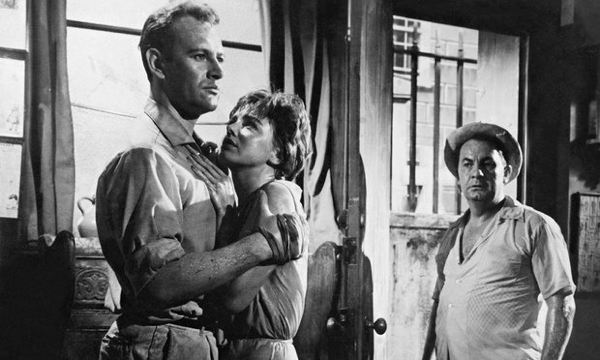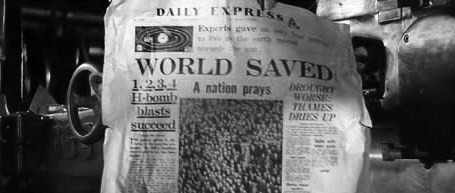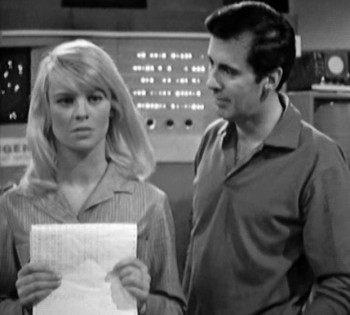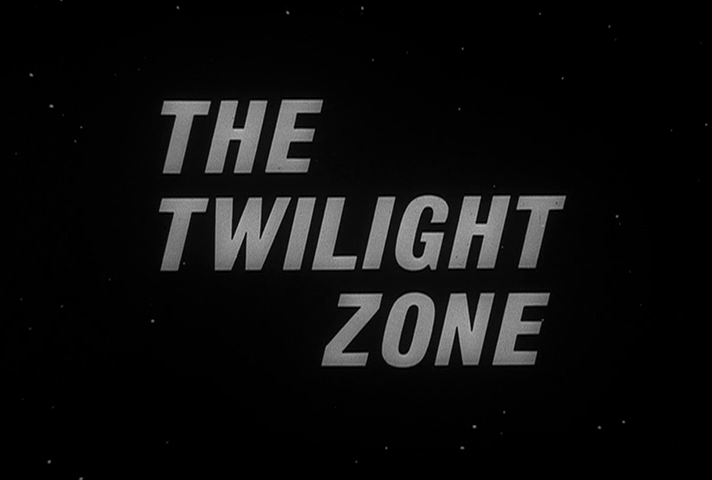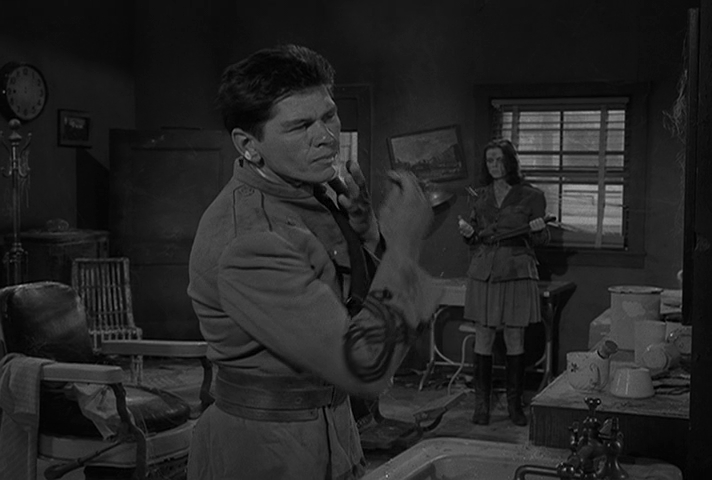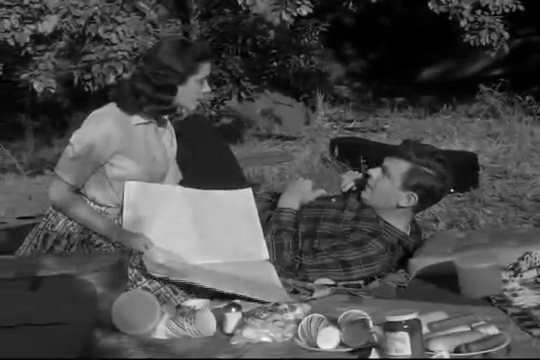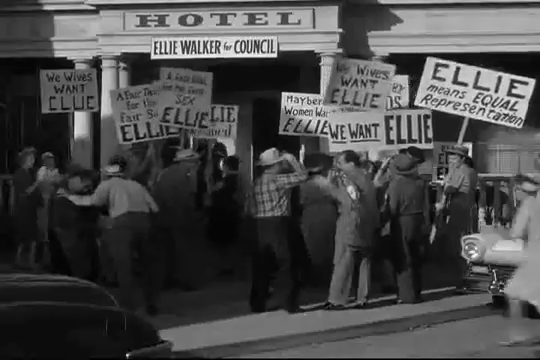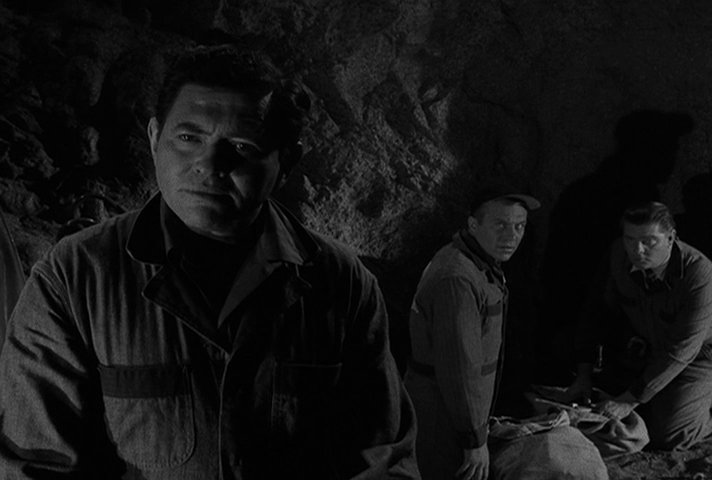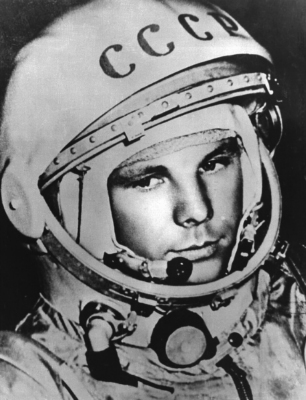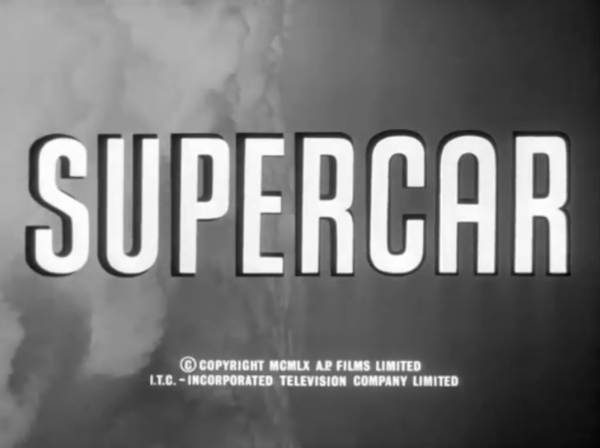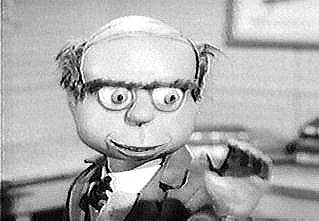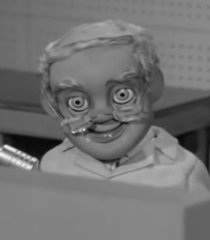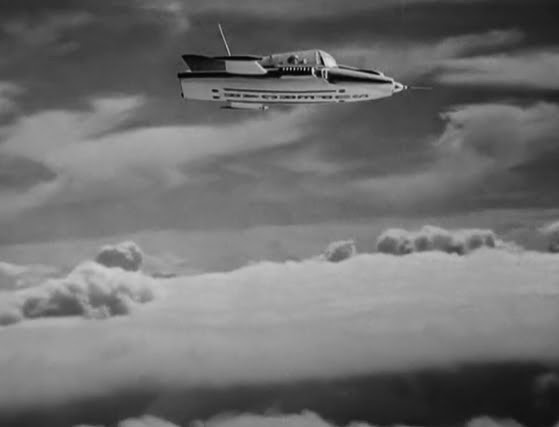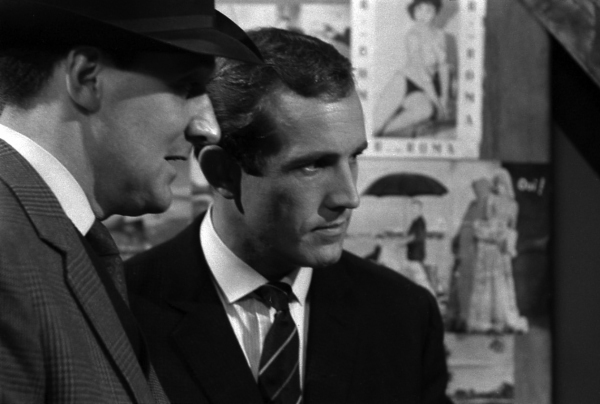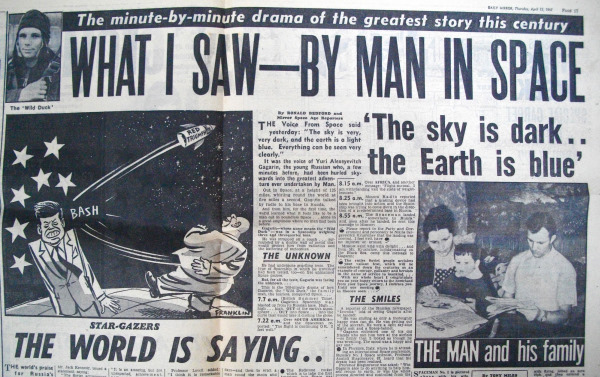
by Gideon Marcus
I feel badly, I really do. Earlier this year, I was given an award by Rod Serling's people. It's an honor I treasure tremendously. After all, Mr. Serling has given us some of the greatest television since the medium was invented.
But now the wheels are coming off The Twilight Zone, and I can't help but be candid about it. This half hour show that used to be the highlight of Fridays is now something of a chore, an event I might well skip if I hadn't committed to covering it in its entirety.
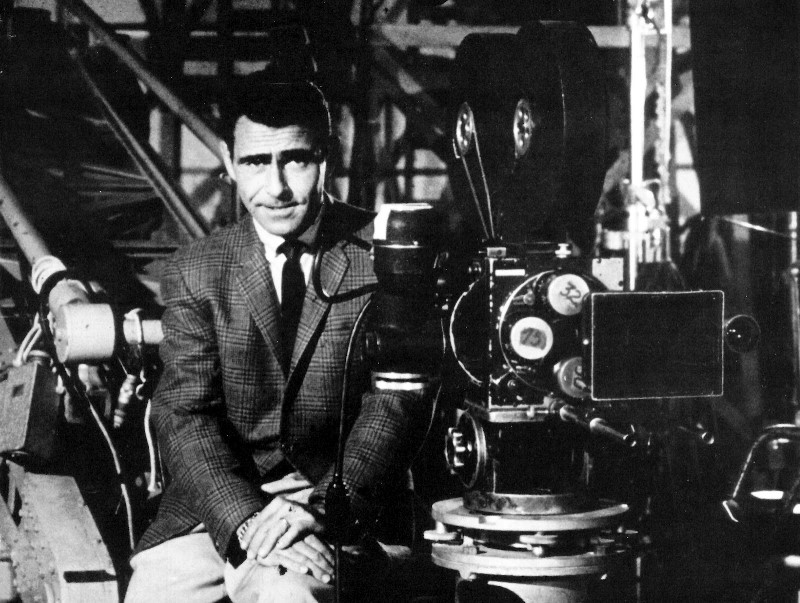
Serling himself confessed last Spring, "I've never felt quite so drained of ideas as I do at this moment. Stories used to bubble out of me so fast I couldn't set them down on paper quick enough – but in the last two years I've written forty-seven of the sixty-eight Twilight Zone scripts, and I've done thirteen of the first twenty-six for the next season. I've written so much I'm woozy. It's just more than you really should do. You can't retain quality. You start borrowing from yourself, making your own cliches. I notice that more and more."
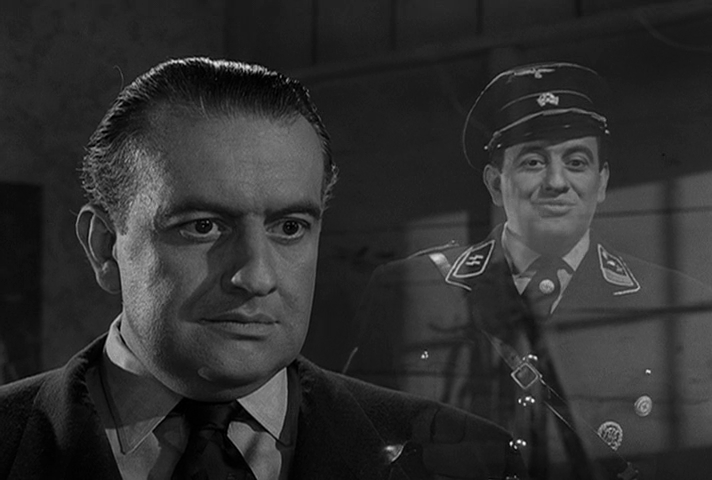
The fact is, of this latest batch of four episodes, none of them are particularly worth watching. There's Death's Head Revisited, about a sadistic Nazi concentration camp commander who goes back to Dachau to relive happy memories. He is haunted and tortured by the spirits of those he tormented. Great subject matter, but tediously treated. It's heavy handed and a bore.
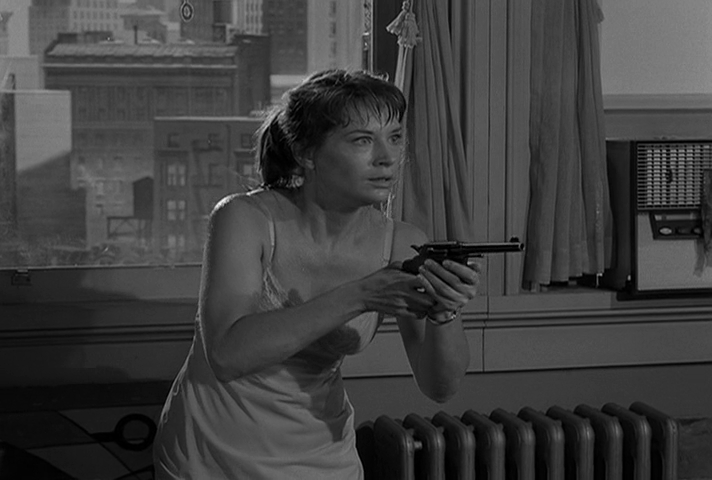
Then you've got The Midnight Sun, where the Earth is knocked out of its orbit, spiraling inevitably toward a fiery death. A woman and her landlady struggle against the rising heat futilely until the both succumb…only for us to find out that the woman was actually in a fevered dream, and the Earth is spiraling away from the sun toward a frozen doom. I like Lois Nettleton, the star (I also enjoyed her the following week in Route 66), but there just wasn't much to the episode. Still, it may well have been the best of the four.
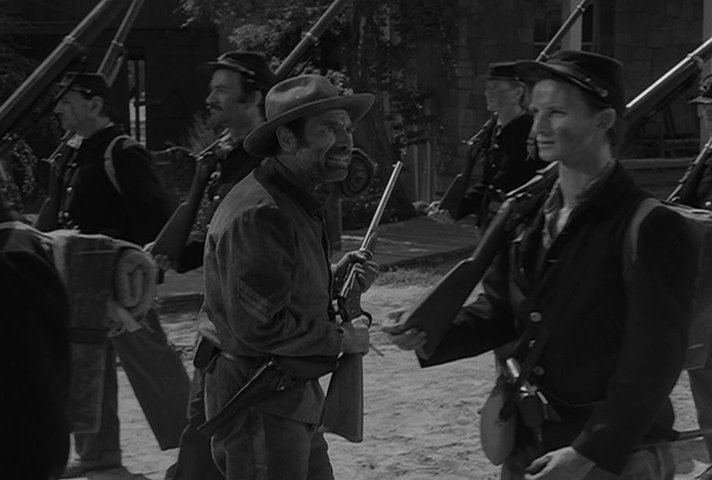
Still Valley, in which a Confederate sergeant gains the power to stop the Civil War, but only by enlisting the aid of the Devil, has its moments. In the end, though, it's too static a piece to recommend. Moreover, we've seen the gimmick of actors frozen in their tracks for long periods in the first season episode, Elegy.
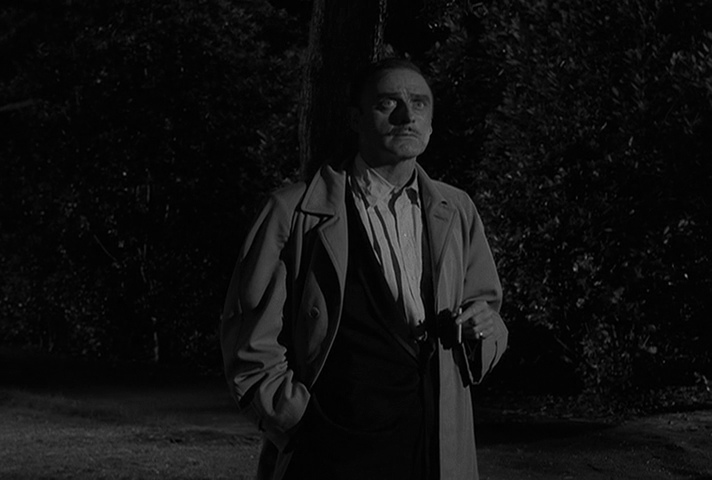
Finally, there's Jungle. It starts promisingly enough, with a stuffy corporate board deciding to approve a dam-building project in Africa, despite the threat of curse from local witch doctors. But the second act, where John Dehner flees the drums of the Dark Continent overlaying a quiet New York night scene, never leads to a third. It simply goes on and on before reaching an utterly predictable climax. It's well shot and acted, but there's no there there.
None of these episodes merit more than two, maybe two-and-a-half stars. If not for the production quality, I'd think I was watching one of the lesser anthologies like the one Roald Dahl hosts. If things don't get better, I fear this may be the last season for this Hugo-winning has-been.

by Lorelei Marcus
After another four weeks, I have yet to be impressed by Twilight Zone's newest episodes. Four out of four episodes were mediocre and forgettable.
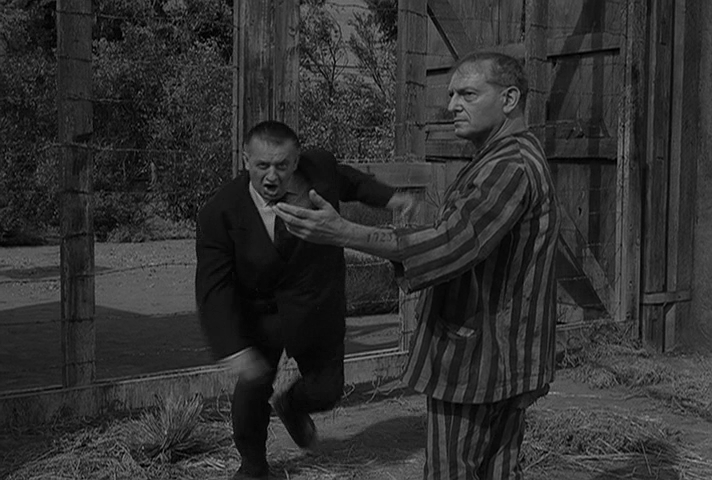
To start off we have an episode about another man that goes insane. The victim is a sadistic Nazi soldier, who revisits an old concentration camp he used to run. He gets haunted by the ghosts of his tortured victims, and they subject him to the same, unspeakably terrible things he did to them. The visuals were alright, and I didn't know what to expect at the beginning of the episode, which seems to be getting rarer and rarer for Twilight Zone, but never the less it was pretty mediocre.

The next episode was a sci-fi apocalypse “what if” situation. The Earth had gotten knocked out of its orbit and was moving closer and closer to the sun. It stars two women, and tells the story of how they're trying to survive. I did like some of the effects in the episode, especially when they got creative and made a painting out of wax so they could make it appear as if it was melting. However, even the effects really didn't make up for the stereotypical plot. The ending was alright, even if the twist was fairly predictable. I suppose I should be grateful that there even was a twist considering that's starting to become a rarity in Twilight Zone episodes too. After having just read Fritz Leiber's A Pail of Air, which is a short story with a similar concept, I think this episode could've been written much better. Still, it proved to be my favorite out of the bunch.
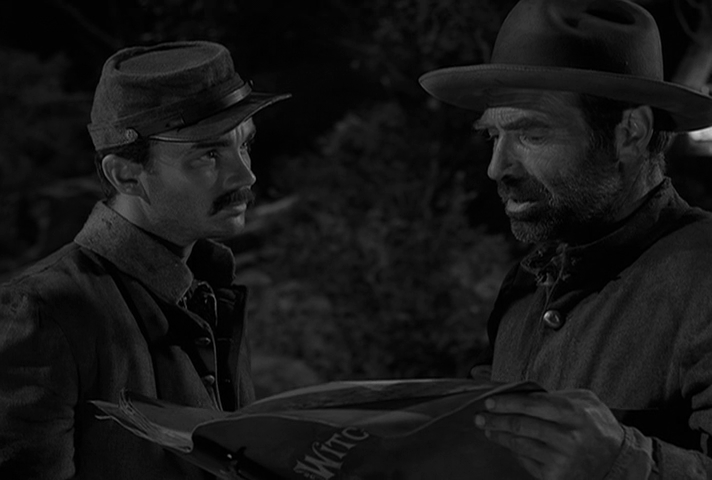
The third episode was another take on a Civil War scenario. There has been a lot of Civil War themed content due to its recent 100th anniversary! The episode starts off with a confederate soldier coming across a town of “Yankees.” The only catch is they're all frozen! Not dead, but frozen in place, unable to move. We soon find out that the cause of this was an old man who practiced witchcraft. Eventually the old man gives the soldier the book, and leaves. The episode ends with the soldier throwing away the book, because even if he could use this book to win the war, the guilt of going against God would be strong. So he burns the book instead. Seeing all the people frozen in place was interesting, but otherwise it was another bland episode.
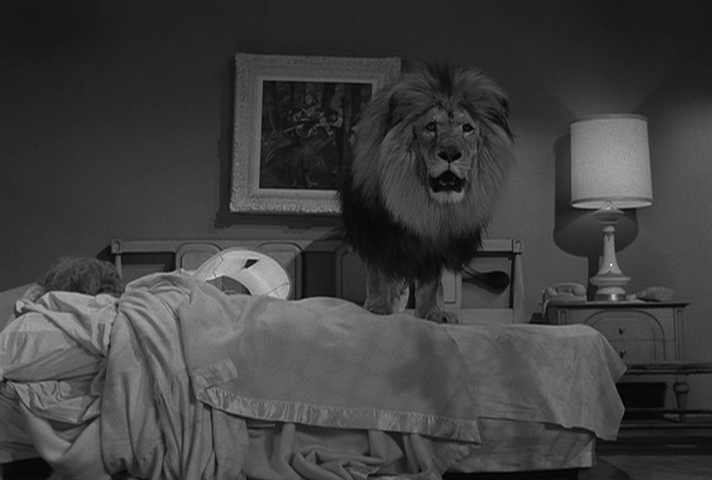
Finally, the last episode was all about superstitions. The entire episode was predictable and much longer than it needed to be. I did like how there was a real lion in the show, but that was about the only part I liked. I was very bored for basically the entire episode. The plot was extremely simple, and there wasn't even a twist! I was thoroughly unimpressed.
Overall, the episodes all had decent effects, but lacked plots and pacing. The twists were dull or non-existent, the pacing was much too slow, and the endings were entirely too predictable. I give these episodes an average of 1.75 stars, with the first being 1, second being 2.5, third being 2, and fourth 1.5.
This bunch was thoroughly unsatisfying, and I hope to see better from Mr. Serling in the future.
This is the Young Traveler, Signing Off.



